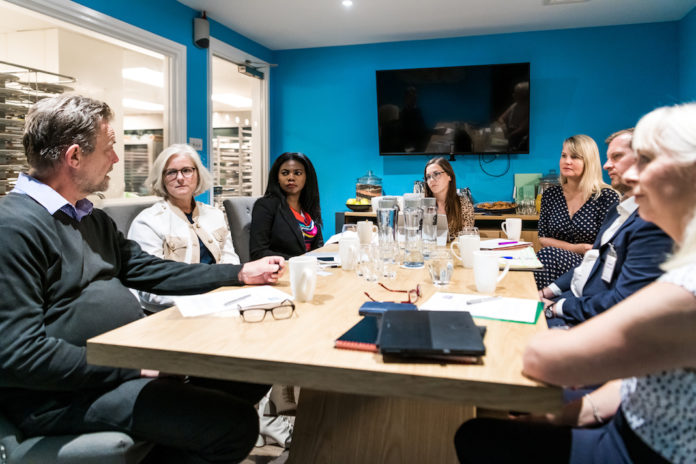The UK event industry is perfectly positioned to lead a new era of CSR, according to events and charity industry experts participating in a roundtable discussion on the subject.
On Tuesday 17th September, the roundtable that discussed the importance of corporate social responsibility in the event industry, and whether enough is being done to keep pace with the evolving demands and expectations of an emerging generation of socially conscious consumers, took place at London’s QEII Centre.
The participants of the event represented both the events and charity sectors, with Diane Waldron, sales and marketing director at QEII and chair of ICCA UK & Ireland; Kay England, chief executive of Imago and chair of the Meetings Industry Association (mia); Paul Black, head of business events at London & Partners; Gracia Kabongo, conference manager at EEF; Jennifer Jenkins, trustee of events industry charity Meeting Needs; and Jon Meech, chief executive of charity Hands on London.
The discussion kicked off with the question of what CSR looks like in the industry today. While it was agreed that recently the industry has taken great steps in sustainability, energy, waste and environmental policies and actions, there is still work to do when it comes to broader socio-economic issues.
With younger generations driving a shift in attitudes that prioritises a company’s values and ethos, CSR will need to become embedded in company culture. As Jennifer Jenkins stated: “It’s about building a corporate social reputation – not just having a policy, but something that is built over time for authenticity. Younger buyers will buy on reputation and that’s from everything you do cumulatively, it’s about your whole track record.”
Gracia Kabongo added: “There’s such transparency now thanks to social media that you can’t hide, you have to put your best foot forward. You’re under the microscope, people will find out if you’re not being authentic.”
Although it was agreed that it’s currently younger event professionals leading CSR initiatives, for a culture shift to happen the whole business needs to be on board.
Kay England said: “You absolutely need culture to come from the top down. Individuals doing pockets of good practice are great, but they need to be given time and they need to be appreciated, if there’s no support they won’t do it. It comes back to integrity and authenticity, the trust needs to be built.”
The importance of CSR in recruitment was also highlighted. Examples were given of people taking salary cuts to work for companies that were better aligned with their own personal values, as a generation is emerging that considers the values and ethos of a potential employer as equally, if not more important, than salary and job perks.
As Diane Waldron stressed: “It’s really important that CSR starts at home. What companies say they’re doing and what employees see them doing and feel like they’re doing, can be poles apart. We have to demand that they join up.”
All of the participants of the roundtable felt that there are currently not enough mechanisms in place to support businesses in the industry that want to improve CSR and community engagement.
Storytelling and communication were highlighted as essential to improvements being made, particularly highlighting individual success stories to offer inspiration.
Paul Black said: “Our industry has brilliant creative and innovative minds, and we have the ability to pioneer change and create positive momentum. We need to collaborate more and give practical, clear advice on what people can do and need a defined framework to support businesses. We’re a solutions-based industry, and when people hear about solutions that have worked, they’re the stories that inspire us.”
The roundtable then went on to discuss how the events industry is in a unique position to inspire and influence other industries. Jon Meech said: “The events industry is a great place, if not the best place, to lead by example, increasing understanding and changing culture. If you have industry leaders and world leaders coming to your venue, I would argue that you have a responsibility to use that resource. You have senior people from all industries coming to events who are the decision-makers and the influencers, and I think most of them would be hungry for ideas and answers to improve their own CSR.”










